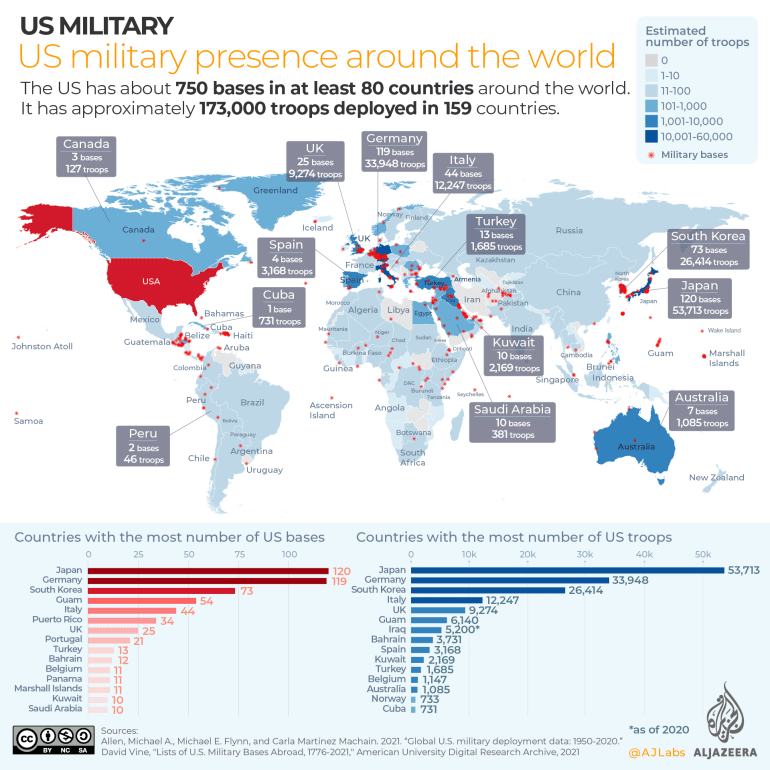More languages
More actions

U.S. imperialism consists of policies aimed at extending the economic, political, cultural and military influence of the United States over areas beyond its boundaries, especially considering the Marxist definition of imperialism as originally defined by Lenin, but other aspects of imperialism as well, such as military operations and economic terrorism.
Doctrines followed (and sometimes proposed by the U.S. government itself since its inception) such as Manifest Destiny, Monroe and his Roosevelt Chorolary, the Big Stick, the National Security Doctrine, etc. and events such as the conquest of the West, the Mexican war, the banana wars, the Spanish-Cuban-American war and, more recently, the Vietnam War, the U.S. blockade against Cuba, the war in Afghanistan, etc. have made "American imperialism" a term accepted by the greater part of the international community.
The United States has interfered in the elections of 45 foreign countries[1] and performed numerous CIA and military interventions around the world.[2]
Military bases
The United States has 750 military bases around the world in at least 80 countries. It also has 173,000 troops deployed in foreign countries. The country with the most U.S. military presence besides the U.S. itself is Japan, with 120 bases and over 53,000 troops. Japan is followed by Germany and then South Korea.[3]
References
- ↑ Dov Levin (2020). Meddling in the Ballot Box. Carnegie Mellon University.
- ↑ Zoltán Grossman. U.S. Military Interventions since 1890: From Wounded Knee to Syria. [PDF]
- ↑ "Mapping U.S. Imperialism" (2022-06-06). Monthly Review. Archived from the original on 2022-06-14. Retrieved 2022-06-17.
